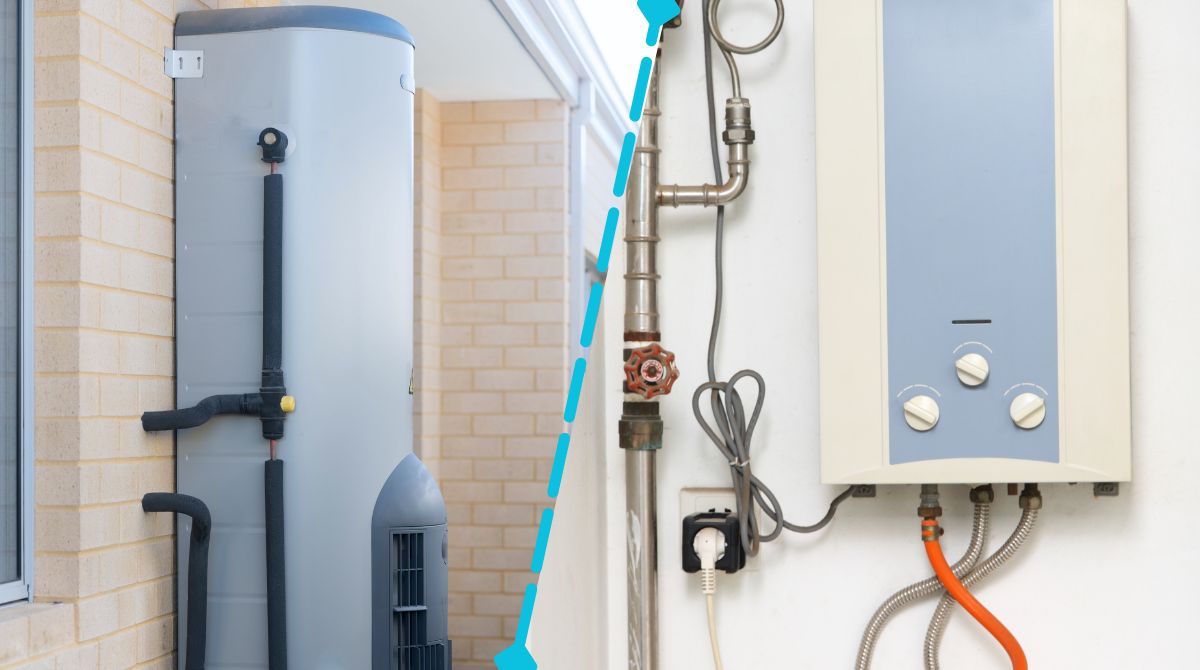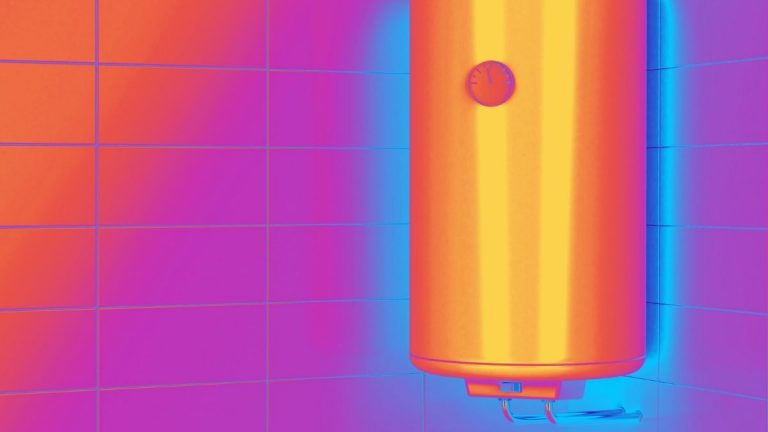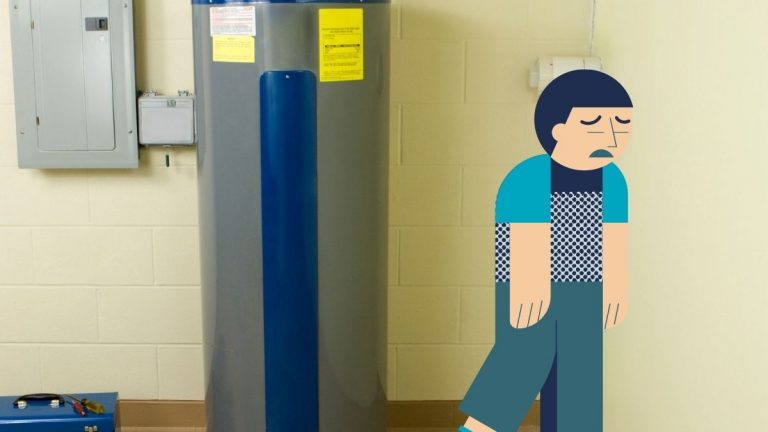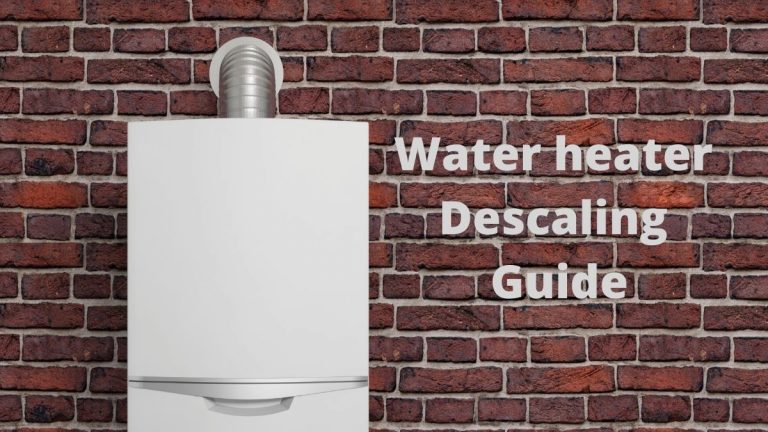Heat Pump Water Heater vs Tankless: Which One Is Right for You?
Are you in the market for a new water heater but feeling overwhelmed by the multitude of options available? Choosing the right water heater is essential for ensuring your home has a reliable and efficient supply of hot water.
In this article, we’ll explore two popular choices: heat pump water heaters and tankless water heaters. We’ll break down their features, benefits, and drawbacks to help you make an informed decision that suits your needs and budget.
Understanding Water Heaters
Pros can skip this section but before diving into the specifics, let’s start with a simple explanation of what a water heater is and why it plays a vital role in our daily lives.
A water heater is a device that heats and stores water for various household activities, such as bathing, cooking, and cleaning.
Without a functioning water heater, these everyday tasks would be far less comfortable and enjoyable.
Heat Pump Water Heaters: A Simple Explanation
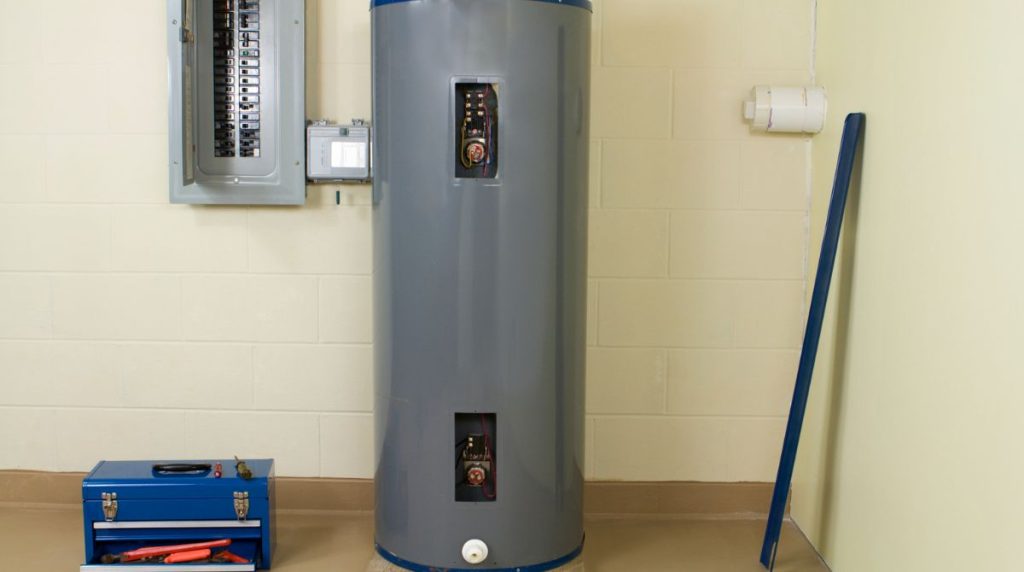
Heat pump water heaters operate on a unique principle. Instead of directly generating heat, they extract heat from the surrounding air and use it to warm the water.
This innovative technology makes them highly energy-efficient and environmentally friendly.
By transferring heat rather than creating it, heat pump water heaters can reduce energy consumption and lower utility bills.
Pros and Cons of Heat Pump Water Heaters
Let’s explore the advantages and disadvantages of heat pump water heaters to help you evaluate if they are the right fit for your home.
Pros:
- Energy Efficiency: Heat pump water heaters are incredibly efficient, producing more energy than they consume. They can significantly reduce your energy bills and save you money in the long run.
- Environmental Friendliness: By utilizing heat from the air, heat pump water heaters have a lower carbon footprint compared to traditional water heaters. They contribute to reducing greenhouse gas emissions and promoting a greener environment.
- Durability: Heat pump water heaters are known for their durability and can have a longer lifespan compared to traditional water heaters.
Cons:
- Higher Initial Cost: Heat pump water heaters generally have a higher upfront cost compared to conventional storage tank water heaters. However, the energy savings over time can offset the initial investment.
- Performance in Cold Climates: Heat pumps rely on the heat present in the surrounding air, which means their performance may be less efficient in colder climates. If you live in a region with harsh winters, this could affect the overall effectiveness of a heat pump water heater.
Ideal Situations for Using Heat Pump Water Heaters
Heat pump water heaters are particularly suitable for certain scenarios. Consider the following situations where a heat pump water heater might be the ideal choice:
- Warmer Climates: If you reside in a region with a warm climate, where there is abundant heat in the air, a heat pump water heater can deliver exceptional energy efficiency.
- Larger Households: Heat pump water heaters are capable of supplying hot water to multiple fixtures simultaneously. If you have a larger household with high hot water demand, a heat pump water heater can potentially meet your needs effectively.
- Energy-conscious Individuals: If you prioritize energy efficiency and reducing your environmental impact, a heat pump water heater aligns with your values. The long-term energy savings make it a smart choice for those looking to conserve resources.
Tankless Water Heaters: A Simple Explanation
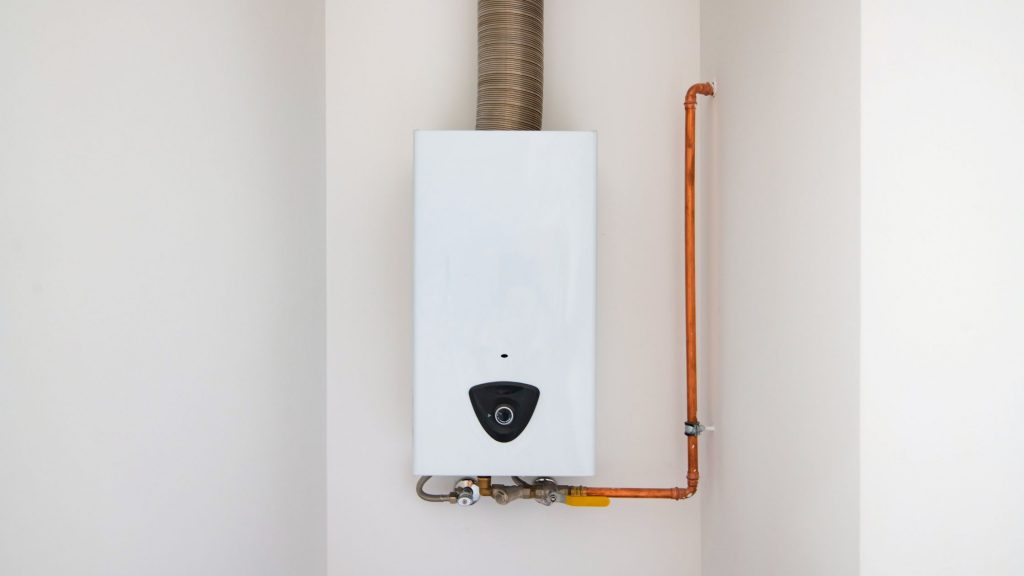
Tankless water heaters, as the name suggests, don’t store hot water in a tank. Instead, they heat the water on demand as it passes through the unit.
This provides hot water instantaneously without the need for a storage tank, resulting in energy and space savings.
Check out the best-rated tankless gas water heaters here.
Pros and Cons of Tankless Water Heaters
Let’s explore the advantages and disadvantages of tankless water heaters to help you assess if they are a suitable option for your household.
Pros:
- Energy Efficiency: Tankless water heaters are highly energy-efficient since they only heat water as needed. There’s no standby heat loss like in traditional tank-style water heaters, which can save you money on your energy bills.
- Space Saving: Tankless water heaters are compact and can be installed in small spaces, freeing up valuable square footage in your home. Check how much it could cost you to install a tankless model here.
- Longevity: Tankless water heaters have a longer lifespan compared to traditional storage tank water heaters, potentially saving you money on replacements in the future.
Cons:
- Higher Initial Cost: Tankless water heaters generally have a higher upfront cost than conventional water heaters. However, the energy savings and extended lifespan can make up for this initial investment over time.
- Limited Flow Rate: Depending on the size and capacity of the unit, tankless water heaters may have limitations on the maximum flow rate of hot water they can provide simultaneously. This can be a consideration for households with high hot water demand.
- Installation Complexity: Installing a tankless water heater may require modifications to the existing plumbing system, which can increase installation costs.
Ideal Situations for Using Tankless Water Heaters

Tankless water heaters are particularly suitable for specific applications and circumstances. Consider the following situations where a tankless water heater might be the ideal choice:
- Limited Space: If you have limited space in your home and need to save room, a tankless water heater is a suitable choice due to its compact design.
- Point-of-Use Applications: Tankless water heaters are often used for specific hot water needs, such as supplying hot water to a single faucet or shower. They are ideal for applications where hot water is needed in a particular area or for a specific purpose.
- Energy Efficiency: If energy efficiency is a top priority for you, a tankless water heater can help minimize energy waste and reduce your utility bills.
Source: U.S. Department of Energy
Comparing Heat Pumps and Tankless Water Heaters
Now that we understand the basics of both heat pump water heaters and tankless water heaters, let’s compare them side-by-side based on key features:
| Features | Heat Pump Water Heater | Tankless Water Heater |
| Energy Efficiency | High | High |
| Initial Cost | Higher | Higher |
| Long-Term Savings | Significant | Significant |
| Performance in Cold Climates | Less efficient | Drop in GPM |
| Space Requirement | Moderate | Compact |
| Lifespan | Long | Long |
Cost Analysis: Heat Pump vs. Tankless
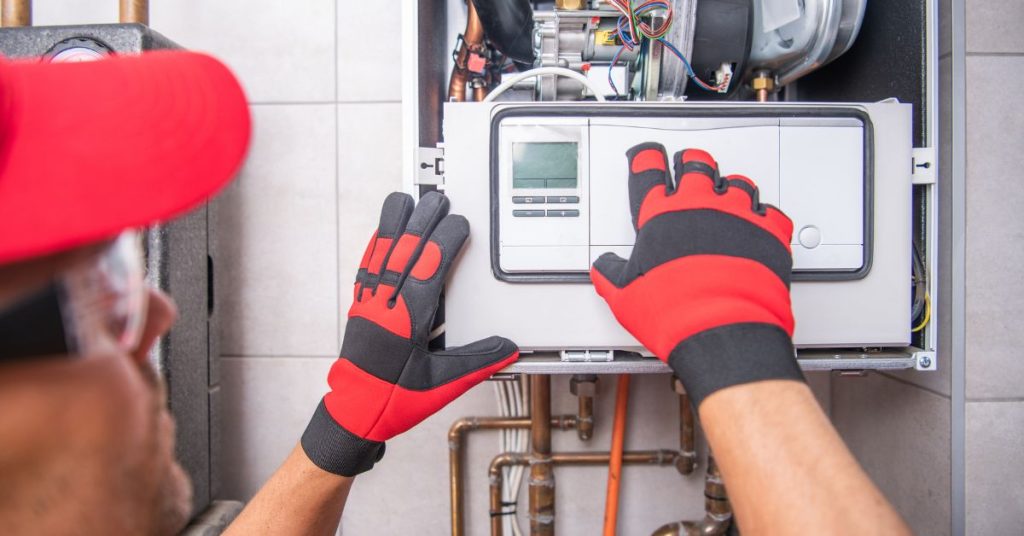
Let’s take a closer look at the cost aspect of both heat pump water heaters and tankless water heaters:
- Initial Costs: Heat pump water heaters and tankless water heaters generally have higher upfront costs compared to traditional storage tank water heaters. However, considering the long-term energy savings and potential rebates or incentives available, the higher initial investment can be offset over time.
- Running Costs: Both heat pump water heaters and tankless water heaters offer energy savings compared to traditional storage tank water heaters. However, the actual running costs will depend on factors such as energy rates, usage patterns, and climate.
- Potential Savings: Heat pump water heaters can save up to 50% or more on water heating costs compared to conventional electric resistance storage tank water heaters. Tankless water heaters can save up to 30% on energy bills compared to traditional tank-style water heaters.
It’s essential to consider the long-term cost implications when choosing between a heat pump water heater and a tankless water heater, as the savings over time can outweigh the higher upfront costs.
Environmental Impact: Which is Greener?

Both heat pump water heaters and tankless water heaters offer advantages in terms of energy efficiency and environmental impact:
- Energy Efficiency: Heat pump water heaters are known for their high energy efficiency since they extract heat from the air. Tankless water heaters are also energy-efficient due to their on-demand heating mechanism.
- Environmental Footprint: Heat pump water heaters have a lower carbon footprint compared to traditional water heaters, as they rely on heat transfer rather than direct energy consumption. Tankless water heaters contribute to reducing energy waste by eliminating the standby heat loss associated with storage tank water heaters.
Making the Right Choice for Your Home
To ensure you make the right choice between a heat pump water heater and a tankless water heater, consider the following factors:
- Climate: If you live in a region with a warmer climate, a heat pump water heater can maximize energy efficiency. On the other hand, if you reside in a colder climate, a tankless water heater may be a more reliable option.
- Household Size: Consider the number of people in your household and their hot water consumption habits. Larger households with higher hot water demand may benefit from the capacity and flow rate of a heat pump water heater or a tankless water heater.
- Budget: Assess your budget for upfront costs and weigh it against the potential long-term energy savings and environmental benefits of each type of water heater.
Tips for Making the Best Decision

- Consult with a Professional: It’s recommended to consult with a qualified professional or plumber to assess your specific needs and provide expert advice on the most suitable water heater for your home.
- Consider Energy Efficiency: Look for water heaters that are ENERGY STAR® certified to ensure they meet high energy efficiency standards.
- Research Local Rebates and Incentives: Check if there are any local rebates or incentives available for installing energy-efficient water heaters. These can help offset the initial costs and provide additional savings.
Go deeper: The comparison of condensing vs non-condensing tankless water heaters.
Over to you!
Choosing the right water heater for your home is a crucial decision that can impact your comfort, energy bills, and environmental footprint. Heat pump water heaters and tankless water heaters both offer unique advantages and considerations. By assessing your needs, climate, household size, and budget, you can make an informed decision that aligns with your priorities. Remember to consult with professionals and explore local rebates and incentives to maximize the benefits of your chosen water heater.
FAQs
Q: Are heat pump water heaters noisy?
Heat pump water heaters generally produce a low level of noise, similar to a refrigerator or an air conditioning unit. However, newer models often have noise-reducing features to minimize any disturbance.
Q: Can I install a heat pump water heater or a tankless water heater myself?
Installation of water heaters, especially heat pump water heaters and tankless water heaters, can be complex and requires expertise. It’s recommended to hire a qualified professional or plumber for installation to ensure proper setup and compliance with safety standards.
Q: How long does a heat pump water heater or a tankless water heater last?
With proper maintenance, heat pump water heaters and tankless water heaters can have a lifespan of 20 years or more, exceeding the average lifespan of traditional storage tank water heaters.
Q: Are there any safety considerations for heat pump water heaters or tankless water heaters?
Heat pump water heaters and tankless water heaters have built-in safety features, such as temperature controls and pressure relief valves. It’s important to follow the manufacturer’s guidelines and have regular maintenance to ensure safe operation.
Q: Can I switch from a traditional storage-tank water heater to a heat pump water heater or a tankless water heater?
Switching from a traditional storage-tank water heater to a heat pump water heater or a tankless water heater may require modifications to your plumbing system. It’s best to consult with a professional to evaluate the feasibility and necessary changes for the switch.

